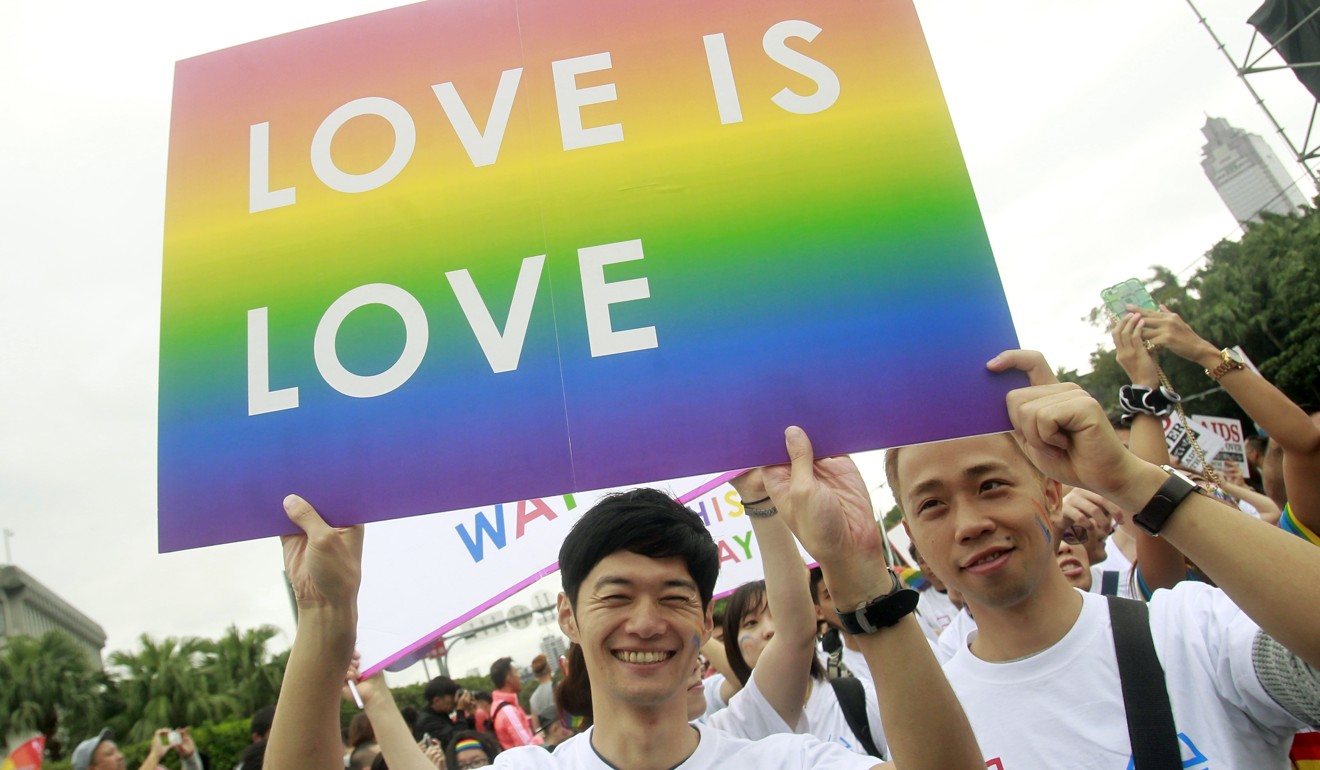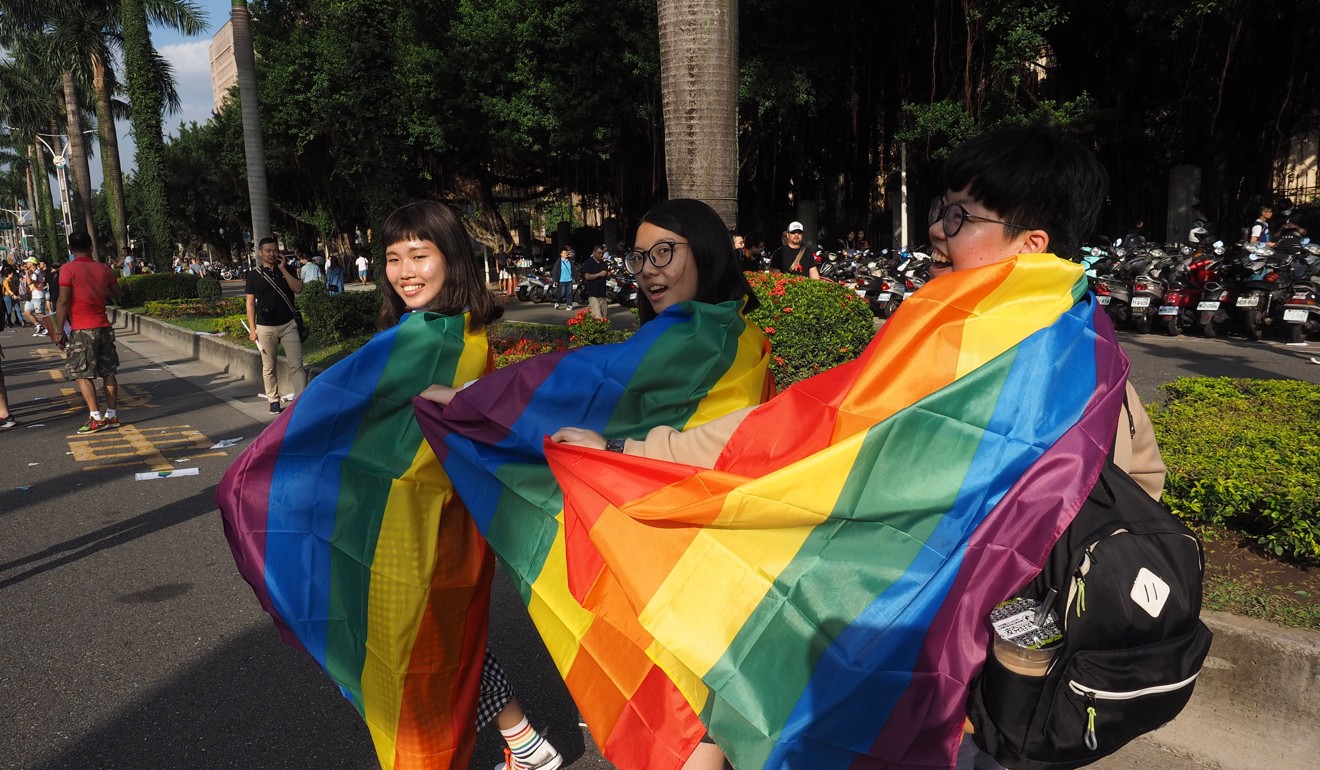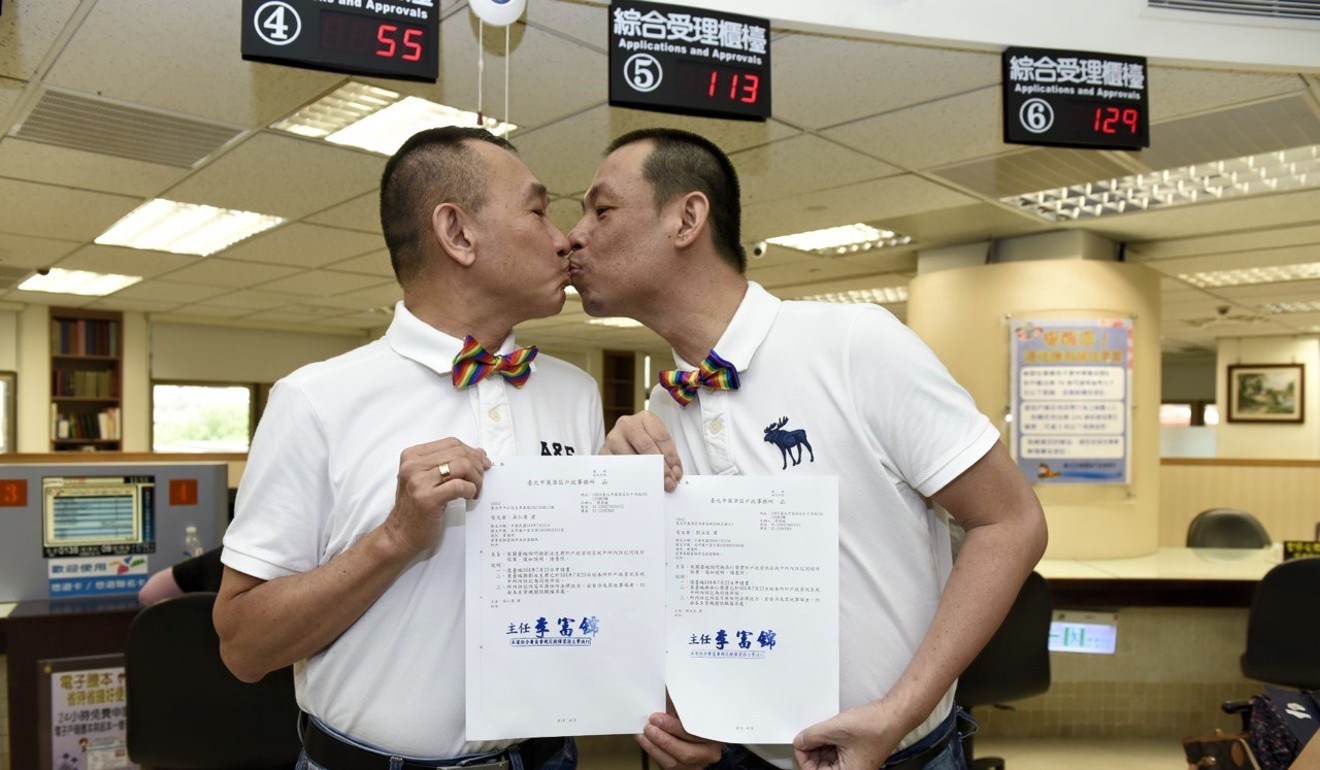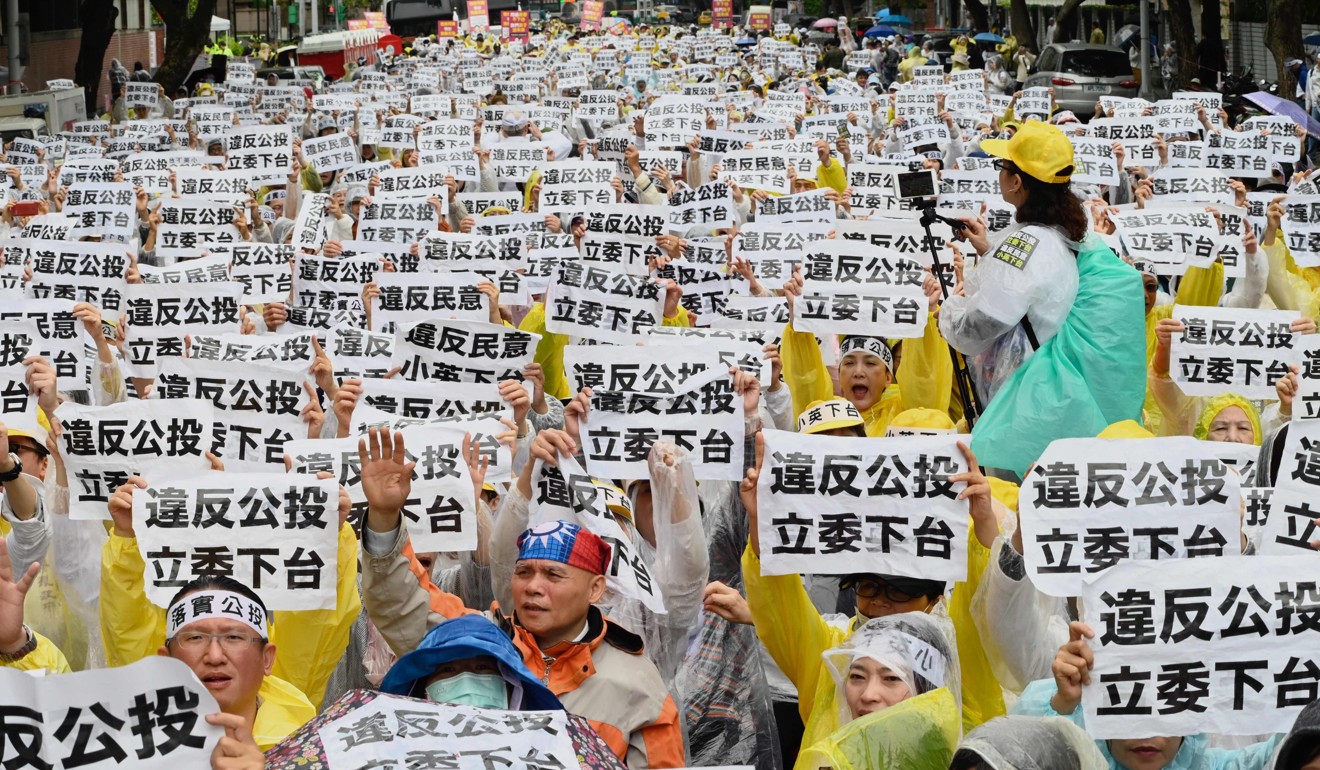Taiwan lawmakers set for historic vote on same-sex marriage, potentially making it the first place in Asia to legally recognise gay couples
- Vote could pave way for island becoming first place in Asia to legally recognise gay couples, but opponents are seeking to water down the government’s proposals

Taiwan’s legislature is to vote on three same-sex marriage bills that could make the island the first place in Asia to allow legal partnerships between members of the same sex.
The votes follow a ruling by the constitutional court that same-sex marriage must be legalised by Friday next week.
One of the bills was drawn up by the island’s cabinet following the court’s ruling, but two others have been tabled by opponents of the measure and aim to water down the legal protections on offer.
“Though the result will not change the ruling, I still hope that the bill drafted by the cabinet can be passed because it confers to couples like us almost all the rights granted to heterosexual couples under the civil code,” said a 50-year-old interior designer nicknamed Xiaowu.
Xiaowu, who met his partner Jamie Wu when he was 27, said he could not wait to enter official wedlock once the measure is passed.
“We have been together for 24 long years, and in July 2014, I thought I might not be able to live to see the day when gay marriage is considered legal. I was diagnosed with thyroid cancer and fell seriously ill,” he said, adding that Wu patiently took care of him day and night without a word of complaint.
“I owe him a lot and I feel I must do something to show him I treasure our relationship,” said Xiaowu, who went to the household census office after he recovered from the illness a year later to register their partnership.
“It was not legally binding like marriage, but at least it showed my love and respect for Jamie,” he said.
Currently same-sex partners have no right to give the consent needed for major surgery and cannot inherit assets and properties even if they were accumulated jointly.

However, in 2017 the constitutional court ruled that laws which denied same-sex couples the right to marry violated the island’s constitution.
The landmark ruling gave lawmakers two years to enact a law for such a union or else same-sex partners will automatically given the same rights as heterosexual couples under the civil code – a move that will be a milestone for Asia.
Legalising same-sex marriage would also fulfil a campaign promise by President Tsai Ing-wen, but the prospect has triggered a backlash from conservative and Christian groups.
Opponents of the measure have staged protests, some of which ended in violence, and have threatened to withdraw support from legislators who back the ruling.
The backlash succeeded in pressuring the Tsai government into allowing a referendum in November last year which saw more than 7 million people voting in favour of restricting the definition of marriage in the civil code to one between a man and a woman.

The conservative groups said they will turn a blind eye to government moves to allow local governments to register same-sex partnerships, but will not tolerate granting gay couples the rights to marry under the civil code.
Currently, 18 cities and counties in Taiwan allow same-sex couples to register as partners, though doing so confers few extra rights.
Xiaowu and Jamie Wu are among 3,429 couples to have taken advantage of this measure so far, according to statistics from the interior ministry.
“We don’t support the two other bills given that they have been initiated by anti-gay groups or Christian societies which oppose marriage equality and are full of discrimination,” said Xiaowu.
His partner said that although the cabinet’s bill grants more rights for same-sex couples, it will not allow couples to adopt children. Instead one of the partners will only have the right to adopt a child who is a blood relation.

The Cabinet’s version of the bill identifies the registered relationships between a same-sex couple as marriage and their status as spouses.
But an alternative measure initiated by conservative groups and tabled by Lai Shyh-bao, a member of the main opposition party Kuomintang, grants more limited rights and defines their legal relationship as being members of a same-sex family.
A third version initiated by Christian groups and tabled by Lin Tai-hua, a member of Tsai’s Democratic Progressive Party, defines their relationship as a same-sex union and the couple as domestic partners.
Lin’s version also includes a clause to allow relatives of a same-sex couple to file a court suit requesting nullification of the couple’s registered union if they believe such a union is faked.
It also stipulates that actions or words opposing same-sex partnerships or teaching others that they are wrong will not be deemed discriminatory.

“If either of the two bills is passed, we will seek to have the constitutional court challenge that,” said Jennifer Lu, the chief coordinator of Marriage Equality Coalition Taiwan, a gay rights group.
She said the cabinet’s draft legislation was the group’s “bottom line” as the proposals do not go as far as the civil code.
None of the three bills has any provision for transnational marriages, meaning unions between Taiwanese citizens and foreign nationals will still be illegal.
“Nothing is perfect in the beginning,” said Wang Ting-yu, who teaches law at Soochow University in Taipei.
“If people feel there is still plenty of room for improvement, they must fight for their own rights,” Wang said.
Meanwhile, opponents of same-sex marriage have vowed to seek to overturn the government’s bill if it passes.
“People are very angry because the Tsai government obviously fails to heed the majority voice,” said Tseng Hsien-ying, president of the anti-gay marriage Coalition for the Happiness of our Next Generation.
“Marriage is only between a man and a woman, and the cabinet’s bill defies the decision of the November’s referendum that same-sex partnership or union is not considered marriage.”